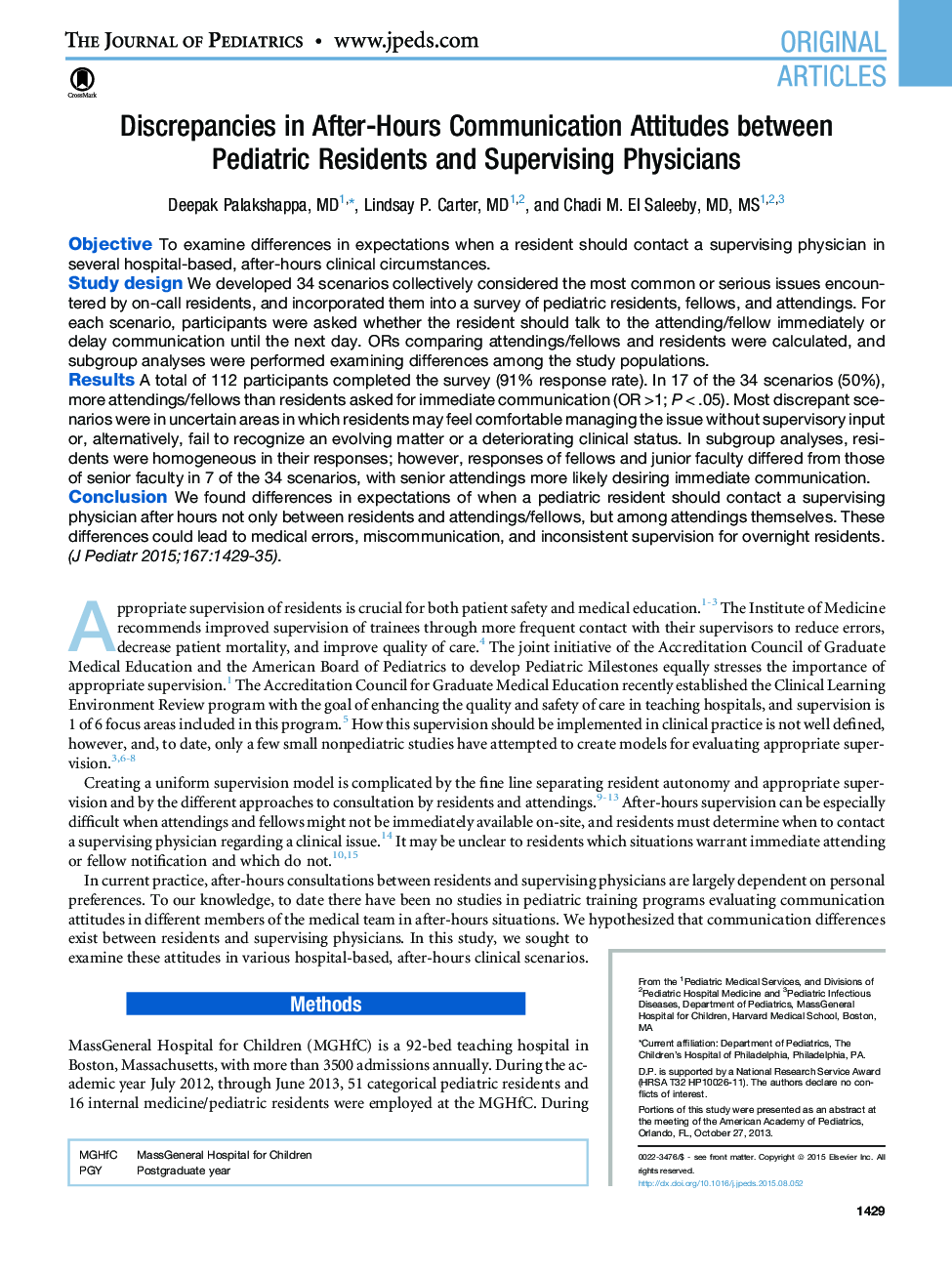| Article ID | Journal | Published Year | Pages | File Type |
|---|---|---|---|---|
| 6219778 | The Journal of Pediatrics | 2015 | 9 Pages |
ObjectiveTo examine differences in expectations when a resident should contact a supervising physician in several hospital-based, after-hours clinical circumstances.Study designWe developed 34 scenarios collectively considered the most common or serious issues encountered by on-call residents, and incorporated them into a survey of pediatric residents, fellows, and attendings. For each scenario, participants were asked whether the resident should talk to the attending/fellow immediately or delay communication until the next day. ORs comparing attendings/fellows and residents were calculated, and subgroup analyses were performed examining differences among the study populations.ResultsA total of 112 participants completed the survey (91% response rate). In 17 of the 34 scenarios (50%), more attendings/fellows than residents asked for immediate communication (OR >1; PÂ <Â .05). Most discrepant scenarios were in uncertain areas in which residents may feel comfortable managing the issue without supervisory input or, alternatively, fail to recognize an evolving matter or a deteriorating clinical status. In subgroup analyses, residents were homogeneous in their responses; however, responses of fellows and junior faculty differed from those of senior faculty in 7 of the 34 scenarios, with senior attendings more likely desiring immediate communication.ConclusionWe found differences in expectations of when a pediatric resident should contact a supervising physician after hours not only between residents and attendings/fellows, but among attendings themselves. These differences could lead to medical errors, miscommunication, and inconsistent supervision for overnight residents.
